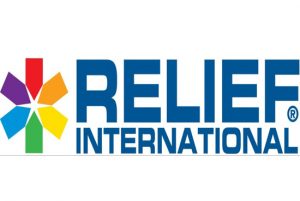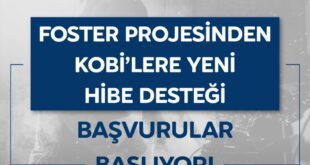Dental Hygiene Promotion Tender Announcement
Request for Applications:
Dental Hygiene Promotion among Refugees in Southeastern Turkey
Relief International is inviting applications from interested local organizations to serve as an implementing partner in promoting dental hygiene among refugees in southeastern Turkey. The deadline for submission of applications is September 30, 2017.
Dental Hygiene Promotion Tender Background:
Relief International (RI) is a humanitarian, non-profit, non-sectarian agency that provides emergency relief, rehabilitation, and development services throughout the world. RI operates in 19 countries across Asia, Africa, and the Middle East and has extensive past performance responding to emergencies. RI’s goal is to empower the most vulnerable communities to develop lasting solutions to their most pressing challenges and to build an environment that creates permanent well-being.
In Turkey, the objective of RI’s programming is to fill the gap in health service delivery for refugees, particularly niche services that are not envisioned to be part of the migrant health centers. With funding from the U.S. Bureau of Population, Refugees, and Migration (BPRM), RI plans to launch a new program in Turkey to contribute to building a more resilient and informed refugee community in Turkey through provision of specialized and preventive health services, while reducing the burden on the Turkish health care system. As part of this program, RI will partner with a local non-governmental organization (LNGO) to improve refugees’ dental health and hygiene through awareness raising and behavior change. Applications are invited from qualified LNGOs to undertake the activities described below.
Dental Hygiene Promotion Tender Problem statement:
Syrian refugees in Turkey have insufficient access to dental care given the limited capacity of the host country’s public dental health facilities and the high cost of dental treatment in the private sector. As of July 2015, only 13 dental clinics were established by NGOs and charities to serve Syrian refugees in Turkey.[1] According to the World Health Organization (WHO), Syria was among the low range countries with prevalence of dental caries for 12-year-old children based on decayed, missing, and filled teeth indicator (Syria was between 1.2 and 2.6 on this indicator) prior to the conflict.[2] However, over the past five years, health services provided for conflict-affected populations in Syria did not pay attention to dental care considering it as a lower priority, non-life saving service, which has led to an entire cohort of young children with no education on dental hygiene. The decreased levels of funding for dental care have further pushed dental health professionals to identify strategies that focus on preventive procedures and positive psychological support to reduce the negative effects of the protracted crisis on the dental health of Syrian communities.[3]
There are only very limited assessments and studies on the oral and dental hygiene conditions of Syrian refugees. Nevertheless, the Turkish Medical Association reports that dental health is among the top five health conditions for which Syrian refugees in Turkey are referred from the migrant health centers to hospitals.[4] This is in line with international literature, which suggests that dental health problems are among the most frequently observed health problems among refugees.[5] Furthermore, a report on access to healthcare services for Syrian refugees in Lebanon identified dental problems as a common health problem for this group,[6] and a survey conducted in non-camp settings in Jordan similarly found that dental health problems are common amongst Syrian refugees.[7]
Traditional curative dental care is a significant economic burden for most refugees who are already struggling to make ends meet; however, the high cost of dental treatment can be avoided by effective prevention and hygiene promotion. Poor dental hygiene and changed diets lead to increase in oral diseases. With increased prevalence of tooth decay and periodontal disease, there is an increased risk of oral infections spreading through the vascular system to other parts of the body causing, for example, heart diseases. Therefore, promotion of dental hygiene and dissemination of knowledge and practices on disease prevention in settings where refugees live, work, learn, and play is an effective and cost-efficient way of improving oral health and, in turn, the quality of life of refugees.
Dental Hygiene Promotion Tender Scope of Work:
At the request of the Turkish Ministry of Health (MoH), the proposed program has been designed to promote dental hygiene among Syrian and other refugees in Turkey given the high need for preventive care messaging. The program will target all age and gender groups among refugees in southeastern Turkey, with a focus on children aged 8-13 and 15-18 – ages at the highest risk of dental caries.
An implementing partner will be selected to conduct educational sessions and distribute information, education, and communication (IEC) materials on dental hygiene through local establishments serving refugees, such as community centers, orphanages, education centers, schools, youth, and health centers as per the protocols to be signed with the MoH and approvals of provincial MoH and relevant departments. Three sessions will be provided per beneficiary: one recreational activity and two promotion sessions. Special child-friendly and age-appropriate activities will be designed for children, involving recreational activities and contests.
The promotion sessions will last 2-3 hours each, where participants will attend a presentation on a specific topic and receive IEC materials and refreshments. Topics to be covered will include the importance and the right method of brushing and flossing teeth, general information about primary and permanent teeth, oral diseases, importance of fluorination, psychosocial support needed with dentist visits and overcoming fear of dental treatment, orthodontic and periodontics treatments, and the effect of oral health on a person’s overall well-being. In addition, the dental hygiene promoters will inform the participants where they can access dental treatment services. The recreational activities will last all day and will target children of younger ages. This activity will include presentations, contests, fun activities, drama, practical training on the use of dental hygiene tools, and distribution of presents (e.g. tooth brush, tooth paste). Both types of sessions will be attended by at least eight beneficiaries.
Various materials, such as training curricula, videos, presentations, posters, leaflets, printed T-shirts, and caps, will be developed in Arabic, and in Turkish if needed. If relevant government approvals are obtained, road ads will be installed in target areas and media promotion activities, such as radio campaigns, can be added.
RI and the implementing partner will recruit dental hygiene promoters ideally from the target communities to ensure community acceptance and will develop a tailored curriculum for training them. The training will be aimed at not only strengthening the promoters’ core content knowledge on dental hygiene, but also building delivery skills including communication skills as well as community mobilization, behavioral change, and sensitization techniques. The training costs will be covered by RI and thus should not appear in the candidate’s financial proposal. Throughout the program implementation, the dental hygiene promoters will continue to upgrade their skills and knowledge through refresher training, on-the-job training, group discussions, teambuilding activities, and experience exchange meetings.
This activity will be implemented in Gaziantep, Şanliurfa, and/or Hatay provinces (exact locations will be defined in consultation with the selected partner) and will reach an estimated 3,000 individuals in one year.
Timeline:
- September 30, 2017: Deadline for submission of applications
- October 2017: Identify and sign a sub-grant agreement with the implementing partner
- November 2017 – January 2018: Recruit and form dental hygiene promotion teams, train the dental hygiene promoters, procure necessary program supplies, create IEC tools, and complete all other preparatory activities
- February-September 2018: Conduct dental hygiene promotion activities
Contingent upon donor funding, the program may be extended for another year.
Budget:
The maximum allowable budget is 450,000 USD.
Key performance indicators:
- % of improvement in targeted beneficiaries’ awareness and practices of dental hygiene topics, disaggregated by age, gender, nationality, and location. Target: 30%
- #of unique beneficiaries who receive targeted dental hygiene messages, disaggregated by age, gender, nationality, and location. Target: 3,000 individuals.
- # of dental hygiene promotion sessions provided, disaggregated by activity type. Target: 360 (120 recreational activities, 240 information sessions).
Submission requirements:
Interested organizations are invited to submit the following documents in English to tender.turkey@ri.org CC: laila.zulkaphil@ri.org by September 30, 2017. Any applications received after the deadline and/or incomplete applications will not be considered.
- A concept note using the template provided in Annex A;
- A detailed budget using the template provided in Annex B;
- A budget narrative using the template provided in Annex C;
- A completed and signed due diligence assessment form using the template provided in Annex D;
- CVs of key personnel;
- Organizational chart;
- Proof of registration in Turkey.
For questions, please contact tender.turkey@ri.org CC:laila.zulkaphil@ri.org before September 22, 2017.
Eligibility criteria:
- Valid registration in Turkey;
- Able to demonstrate successful past performance in implementation of community health and hygiene interventions;
- Established outreach capabilities with linkages to the beneficiary group(s) and stakeholders;
- Demonstrate good knowledge of the Syrian refugee context in Turkey and have current presence/ running programs.
[1] Oral health consequences of the crisis in Syria, a letter to British Dental Journal, July 2015
[2] World map on dental caries for 12 years, WHO, July 2003
[3] Oral health consequences of the crisis in Syria, a letter to British Dental Journal, July 2015
[4] Turkish Medical Association, “War, Migration, and Health: Experience of Turkey,” 2016
[5] Ibid.
[6] El-Jardali F, Hammoud R, Fouad FM, Bou Karoum L. K2P Briefing Note: Promoting Access to Essential Health Care Services for Syrian Refugees in Lebanon. Knowledge to Policy (K2P) Center. Beirut, Lebanon; June 2014
[7] Ay, M., Gonzalez, P.A., and Delgado, R.C. (2016), The Perceived Barriers of Access to Health Care Among a Group of Non-camp Syrian Refugees in Jordan. International Journal of Health Services, Vol 46, Issue 3, pp. 566 – 589
 Hibe Destek | Hibe, Proje, Kredi, İhale, Destek Giderleriniz üzerindeki finansal baskıyı %80'e varan hibelerle hafifletin..
Hibe Destek | Hibe, Proje, Kredi, İhale, Destek Giderleriniz üzerindeki finansal baskıyı %80'e varan hibelerle hafifletin..


